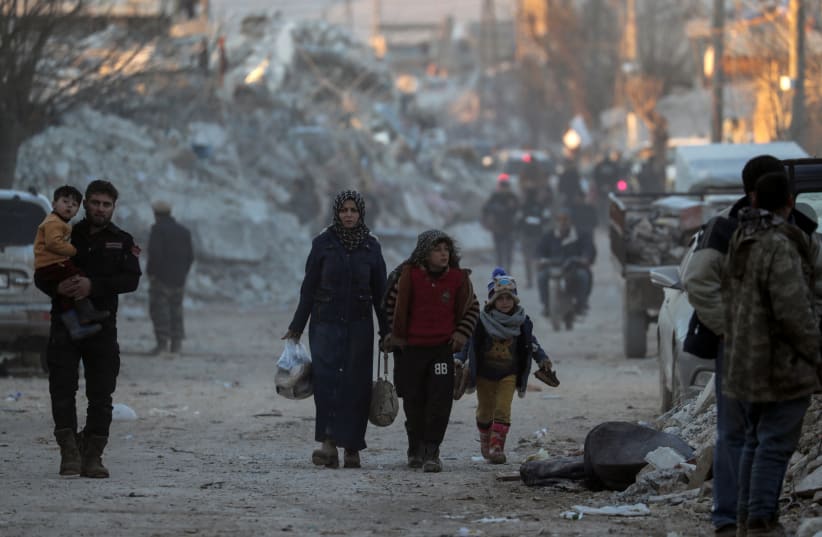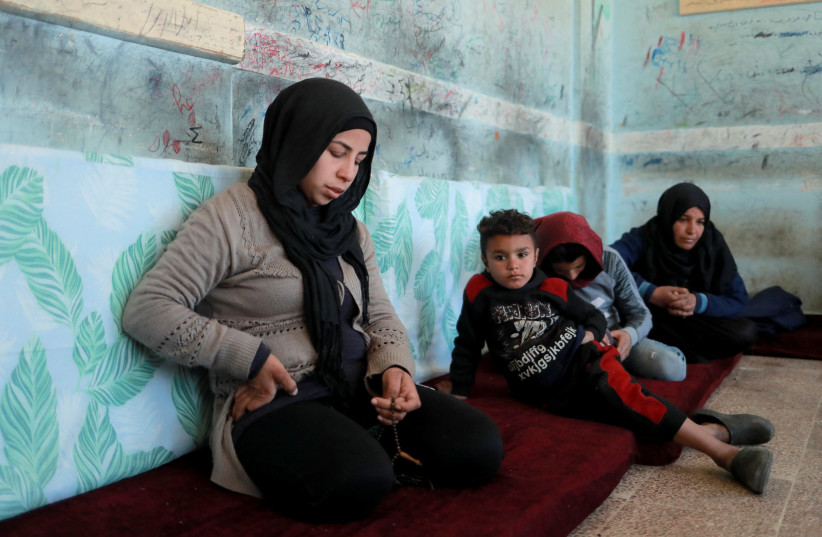There are millions of Syrians in Turkey, most of whom fled from Syria during a decade of civil war in their home country. The massive earthquakes that struck Turkey in early February have now caused thousands of Syrians to lose their lives, and many remain missing. They now face an impossible and uncertain future, both because of local politics and also because they can’t even find their missing loved ones, and don’t know what will come next. They can’t return to Syria, in most cases, and can’t flee to Europe.
Over the last eleven years, some of them have moved from Turkey to Europe, often choosing dangerous crossings at sea, a process that was reduced after March 2016 due to an agreement between Ankara and the EU. Now the Syrians face rising challenges in Turkey, from government bureaucracy that makes it difficult for them to move residences, and a looming election in which politics tends to trend against the migrants and refugees.
In the wake of the earthquake, some focus has been on helping Syrians in Syria, including organizations and countries trying to send aid via Damascus or via Turkey and the lone border crossing of Bab al-Hawa at Reyhanli. That crossing was damaged in the earthquake and to get there one has to traverse Hatay province, where many towns and villages were badly damaged in the quake. In addition, while some 40,000 people have been confirmed dead in Turkey, there many be tens of thousands of missing people.
Turkey doesn’t seem to know or want to reveal the totality of the destruction. For aid going to Syria this is an issue, but in Syria at least there is focus on helping Syrians. In Turkey the focus has moved on from search and rescue now. But Syrians are in some ways at the end of the line because what focus there is will focus on Turkish citizens. There is another issue facing Syrians, because they are generally poor and marginalized, they may live in undocumented residences, and that means if they went missing in the earthquake, there may be no one to say where they lived or record their missing status.
Major media in Turkey is generally pro-government because the authoritarian government has forced most critical media to leave the country. Foreign media reporting on the earthquake have put a spotlight on the fact that many modern buildings collapsed and that corruption and cutting of corners apparently made buildings unsafe. This is despite the fact that Turkey had a special tax to prepare for an earthquake after the disaster of 1999.
The evidence that Syrians are suffering impossible choices in Turkey is clear from the few pieces of data available after the earthquake. One report at Info Migrants says 16,800 Syrians have returned to Syria following the earthquake. Some 7,000 of these had passed through Bab al-Hawa by February 20. This appears to be more than those the UNHCR said returned voluntarily in the first half of 2022. Turkey has been trying to push for some 1 million to return since last year. Another report at Iran’s Tasnim News said 17,231 had returned, although it wasn’t clear where that number came from.
The earthquakes struck Turkey on February 6 and by February 17 the BBC said it was believed some 1,500 Syrians had died in the quakes. Initial reports said 1,790 Syrians had returned to Syria. By February 17 a total of 1,522 bodies of Syrians had been taken across the border from Turkey for burial. The Guardian said 2,300 bodies had been returned. What’s clear from the numbers is that not only are thousands being sent back for burial, but that thousands remain missing and we’re just seeing the tip of the data in reports.
Syrians generally were happy with how they had been greeted in Turkey in the early years of the war. Members of the opposition were hosted in Turkey and believed Ankara was on their side. The ruling AKP party appeared to champion their cause, even launching cross border operations. However, those operations quickly became more about fighting members of the Kurdish YPG, than fighting the regime. Aleppo, for instance, fell while Ankara did little in 2016. But Ankara invaded Afrin in 2018. Now those areas Ankara controls have been harmed by the quake. For the last two years Ankara has begun to lash out at the Syrians, trying to get them to go back to Syria, or even recruiting them as proxies. An EU deal in 2016 pays Turkey to keep Syrians and other refugees from going to Europe. Turkey, at odds with Greece and demanding a new invasion of eastern Syria, as well as making it hard for Sweden and Finland to join NATO, now faces a crossroads with the millions of refugees. An election looms in May as well.
For the Syrians the last two years have been increasingly difficult. Syrians are registered in Turkey under a Temporary Protection Regulation, which HRW says "grants Syrian refugees access to basic services including education and health care but generally requires them to live in the province in which they are registered." Racism against Syrians has increased, a source told me. The obstacles that make it so Syrians cannot move residences makes their life very difficult and controlled by landowners. For instance if a person cannot afford rent or a landlord kicks them out, they would have to find a place to rent in the same area. They lack choices. One compared life to a kind of prison. The earthquake has caused such chaos that now people have a short 3 month exemption from these rules. There is very little coverage of this issue by major media or human rights groups and Ankara may toughen restrictions before the elections. In addition concerns that Syrians would again try to make way to Greece means the EU doesn’t want to raise this issue because the Ukraine war is already straining Europe.
What can be done. One source suggested the UN could be of more help after the earthquake, especially providing Syrians some support or flexibility in their options. Syrians could be helped directly in Turkey and the UN or others could work to convince Turkish authorities to end the restrictions on movement, the source says. For instance, the Syrians suffering after the earthquake could get assistance for rent or to re-settle where they want. They also need shelter.
The areas impacted worst by the earthquakes are areas where many Syrian refugees live. This includes Hatay and also Gaziantep. These are areas where many Syrians who fled Syria via Bab al Hawa or Kilis would then move on to cities like Antakya or other areas. Now many of these areas have seen whole parts of their cities and towns destroyed. Reports say that an estimated 345,000 apartments were destroyed in the earthquakes. This is an astounding number. Another smaller earthquake this year caused more damage. Although the death toll is officially around 50,000 now, the huge number of destroyed apartments appears to mean the toll will eventually be much higher. How many thousands of Syrians or tens of thousands are missing? How many who lived lives on the margins of society, or were crammed into apartments, unregistered or undocumented in some cases, are now missing, with no one to say where they lived? These kinds of questions linger and it illustrates the immense human cost ahead.

